A real(?)-life moral tale with some poignant lessons for our post-evangelical friends.
by Phil Johnson


ongtime readers will remember a character who posted in our comment-threads for several months as "Touchstone." He's one of only half a dozen people or so who in three years' time have managed to get permanently banned from commenting here. He was banned for (among other things) repeated acts of recreational profanity. I hated banning him, because he was more interesting than the typical miscreant who invades our meta. But it seemed he
wanted to get banned, because his rule violations were deliberate—and they escalated in intensity after he was warned.
I first encountered Touchstone at the
Pulpit Live blog, where he
showed up to take a swipe at me for suggesting that Brian McLaren "despises" certainty. Of course, Brian McLaren
badmouths certainty at practically every opportunity—saying things like
"Certainty is overrated," and fulminating about
how irritated he gets when he hears preachers on the radio who sound more sure than he is about their biblical convictions.
Has Mclaren ever actually used those precise words: "I
despise certainty?"
Huh? No? Then—sez Touchstone—
"I don't think an honest reviewer could say that McLaren 'despises' certainty."
Wow.
Touchstone was a master of that kind of nitpicky, pointless deconstruction, highly skilled in the use of hyperbole and evasion—but the strictest of literalists when it came to parsing his critics' words. You know: a classic postmodern post-evangelical. Naturally,
Touchstone himself didn't seem to think much of certainty either (except when it came to his own unshakable conviction that his personal opinion is more authoritative than the Bible).
Nevertheless, in his early interaction with me, Touchstone deliberately
implied that he considered himself a Christian, writing at one point,
"I tell people who ask for a starting point that I unreservedly affirm and support with *certainty* the Nicene Creed and the Apostle's Creed. I can quote them here, but I'm sure you're familiar."
Careful scrutiny (employing Touchstone's own preferred style of deconstruction) will show that this is no profession of faith at all. He
"tell[s] people who ask . . ." that he affirms the basic creeds of Christendom. But did he
really embrace the truths set forth in those creeds? I never once saw him profess actual belief in
any vital point of Christian doctrine. His specialties were denial and deconstruction, and his attitude toward Scripture was overtly and consistently hostile. That was evident from the start of our interaction (almost two years ago now).

The ambiguous and minimalistic way he tried to imply that he was a Christian was not the only reason to distrust him. In our earliest exchange, he demanded evidence—"at least a token footnote reference"—demonstrating that there is increasing uncertainty among professing evangelicals regarding whether absolute truth even exists.
My first-ever message to him started by giving him
the documentation he had asked for, in the form of statistics from a Barna survey. He ignored that part of my comment and continued to insist the original point needed documentation. When I suggested that he had overlooked the link I gave, he said he'd seen it, but it wasn't the
kind of documentation he wanted.
That basically defined his style of discourse. When anyone refuted him he moved the goalposts. He was relentless. Practically every comment he ever made was dripping with smug postmodern skepticism and infused with a tone of ridicule. But he was sometimes amusingly clever, occasionally somewhat articulate, and always tirelessly verbose. So
I answered as many of his comments as time permitted. I can't recall any time that he ever conceded a point on anything, no matter how insignificant.
He generally weighed in on threads dealing with the Emerging Church, postmodernism, or the authority of Scripture. Several of the post-evangelical critics who hang out in our combox used to tag-team with him, high-fiving and echoing his dismissive remarks. I almost said
"arguments," but he had just
one argument: that we had misunderstood or were misrepresenting post-evangelical opinions.
Still, his actual agenda always seemed to be a little deeper than merely defending postmodernity. His own blog showed little interest in Emerging/Emergent Christianity; it was basically
a rationalistic attack on the Genesis account of creation. Though he never brought that issue up here, he hammered the theme
in the combox at Triablogue (and on
his own blog). It was clear, if you read his comments
here and
there, that the presupposition underlying all his opinions was
a belief that science and theology are mutually exclusive. Science is rational; theology belongs to the realm of the imagination. That, of course, is modern atheism's main tenet.
I began to wonder if he was really an apologist for atheism, posing as some kind of Christian.
Everything he ever posted was consistent with that hypothesis. Virtually all his comments on our blog found a way to promote skepticism, attack some vital Christian truth-claim, or question the plain meaning of Scripture. He sounded like one of those de-converted former pastors who spreads the gospel of atheism with more zeal than he ever had for the faith. He clearly had a close familiarity with evangelicalism. His carefully-guarded anonymity and his finesse as a writer and polemicist made me wonder if he was someone we'd all be familiar with if we knew his real name.
Here's a typical sample of one of my replies to him, from
this thread:
 Touchstone illustrates precisely what I've said about why a postmodern attitude toward "truth" undermines the authority and perspicuity of Scripture. Touchstone illustrates precisely what I've said about why a postmodern attitude toward "truth" undermines the authority and perspicuity of Scripture.
If you grant a radical redefinition of terms like true and authoritative (in effect making those concepts infinitely relative), there's ultimately no level of unbelief you couldn't label "faith"; and there's no heresy you couldn't teach while simultaneously professing to hold an orthodox opinion on whatever doctrine you're actually denying. If you can also get people to swallow the claim that your radically redefined view of Scripture and the Christian faith is nothing more than a difference in "interpretation," you can put anything on the table for discussion.
That's precisely what's happening as Emerging/Postmoderns gain influence among evangelicals.
And that's also why I wouldn't necessarily take any postmodernist's profession of confidence in the "truth" and "authority" of the Bible at face value.
Touchstone: "So Phil can contend that I'm simply a liar, I suppose."
Let's be clear: That's exactly what I contend. Whether it's deliberate on Touchstone's part or he's self-deceived, I don't pretend to know. But we are obliged to "let God be true, but every man a liar" (Romans 3:4)—and Touchstone usually sounds more cynical than serious. Do the math.
If the charge is that I have a very high view of Scripture, I plead guilty. Christ likewise had a high view of Scripture. To suggest that a high view of Scripture constitutes a kind of "idolatry" is a lie that strongly echoes the father of lies himself.
On the other hand, someone who thinks the Bible is a human work, full of errors, and subject to an infinite number of possible interpretations, doesn't really believe in the truthfulness, authority, and perspicuity of Scripture in any meaningful sense.
Redefining terms like truth and authority and then claiming you affirm those things doesn't really make your unbelief any more "orthodox"; it just makes your error more subtle.
Incidentally, anyone tempted to be sympathetic to Touchstone's complaints about my refusal to "engage" him in "dialogue" should note that there's a history to my discussions with him. Read some of our earliest interaction; note how he asks for documentation; ignores it when given; then shifts the whole ground of his complaint. That, in microcosm, is how "dialogue" with him invariably goes. You can judge for yourself whether he sincerely seems to desire a good-faith conversation or merely  aspires to be an annoying gadfly. After numerous verbose and cynical comments from him, always negative and usually grounded in a position on Scripture that is contrary to the Protestant confessions, I can't resist the conclusion that it's the latter. I'm not going to waste time or dignify his skepticism by treating it as genuine faith colored by nothing more than a different hermeneutic. aspires to be an annoying gadfly. After numerous verbose and cynical comments from him, always negative and usually grounded in a position on Scripture that is contrary to the Protestant confessions, I can't resist the conclusion that it's the latter. I'm not going to waste time or dignify his skepticism by treating it as genuine faith colored by nothing more than a different hermeneutic.
And I'm not going to pretend to take him more seriously than he himself takes the Word of God. |
|

Shortly after we had to ban Touchstone from commenting at PyroManiacs, Peter Pike made
a post at Triablogue documenting some of Touchstone's blatant lies. Pike pretty well furnished proof of what I had long suspected: Touchstone was really an atheist pretending to be some sort of believer.
Touchstone made a lengthy but lame comment in the combox under Peter's post. He neither affirmed nor expressly denied Peter's main premise. But in a remarkable instance of the irony that often colored his comments,
he accused the Triabloggers of attacking his integrity because they could not answer his arguments.
The next day, Steve Hays banned him from Triablogue. That was 25 August 2007, (
NOTE:)
more than a year ago.
If Touchstone ever replied further to Peter Pike's post, I didn't see it. He more or less seemed to disappear, and I had nearly forgotten about him—until last Friday, when I followed a link from one of his old comments back to
his profile.
Turns out he's now
openly promoting atheism. He has dropped any pretense of being a Christian and joined
a band of atheistic e-vangelists who have twice the zeal and half the elegance of a Salvation Army tambourine band at Christmastime.
His atheistic "testimony" (posted just last month) is one long bald-faced lie. Touchstone now claims he went from being "a devout Christian" ("a deeply committed, 'sold out' believer for decades") to a full-on atheist just within the past twelve months. He insists (with a straight face) that this all happened to him quite unexpectedly and totally against his will—while he was merely trying to rebuild and fortify his faith.
Touchstone's testimony is instructive on multiple levels. He says he had become disillusioned with evangelicalism, stopped attending church for three years, then decided to become Catholic. (He insists that during his three-year hiatus from church he was still "committed to [his] belief in God and [his] faith in Jesus as [his] redeemer and savior.") But "about a year ago now"
(after getting banned here and at Triablogue?) he decided to put
everything on the table for reexamination. He became (in his own words) a "provisional atheist," ostensibly as a way of buttressing his faith through some sort of rational process of reinvestigation.

Now, it is patently obvious to anyone who ever read his comments here and at Triablogue that Touchstone was no "devout Christian" a year ago. In fact, he was already an inveterate skeptic almost
two years ago. And you've got to assume he didn't get
there from his supposed evangelical upbringing overnight. So the veracity of Touchstone's story (especially his imaginary time line) is easily debunked, merely by doing a Google search
here and
at Triablogue and reading the comments he was making as far back as 2006. Those comments are irrefutable proof
in his own words that the story he is now telling is sheer fantasy.
Virtually everything significant about Touchstone's online persona—including his recent "coming-out"—is a charade. Remember: his deep skepticism was evident here from the start. In one way or another agnosticism and contempt for biblical authority infused virtually every comment he ever posted here.
We knew he was an atheist more than a year ago.
But what's most fascinating to me is the very high level of synergy between him and the small cadre of post-evangelicals who like to hang around our combox. Many of them use the same style of argument, share some of the same epistemological presuppositions, and hold the same contempt for certainty that he had. He fit in remarkably well with a certain sector of post-conservative, post-evangelical, post-certain commenters here and elsewhere around the blogosphere. It is evidence of something I've been saying for more than a decade:
the postmodern perspective on truth and certainty has a dose of atheism built right into it. At the very least
the postmodern enshrinement of values like doubt, ambiguity, distrust, demurral, and uncertainty is inherently agnostic.
Furthermore, Touchstone's need to fabricate a bogus "testimony" like this vividly illustrates another principle that ought to be self-evident: those who deny the truth are themselves untruthful. People who scoff at faith are naturally untrustworthy.
Despite the fact that Touchstone's testimony is an obvious lie, some of the emotions described in his account have the ring of
bona fide experience. Reading his account made me sick at heart—and profoundly, deeply sad over the inevitable impact of his worldview on his wife and family. Touchstone is a fitting cautionary emblem for people who think postmodern epistemologies are interesting playthings. He is a flesh-and-blood example of the vital truth of Proverbs 4:23: "Keep your heart with all vigilance, for from it flow the springs of life." (See the full context of Proverbs 4:23-27, and remember that "evil" includes false ideologies.)
I rather suspect that Touchstone's account is an Oliver Stone-style blend of modified fact and sheer fantasy—a compressed and romanticized retelling of an experience that stretched across several years. If we take the general contours of his testimony at face value, it should be clear (to those who have eyes to see) that
unbelief was the engine giving momentum to his "quest" from the beginning. He decided very early in the process that he would not have the Bible as his authority. Rejecting the very notion of revealed truth out of hand, he chose to make his own rationalistic judgments about what is true, in essence making his own thoughts authoritative over God's Word rather than vice versa. For all the energy he spent defending postmodernism here in our combox, it turns out he fell for the quintessential modernist lie.
Selah.

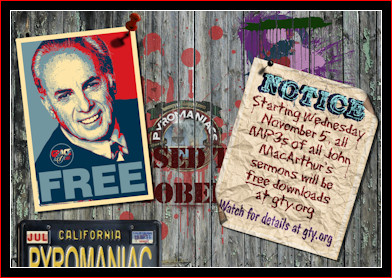
 So despite what I said the other day, the archives will be available this month. Dan Phillips checked and found a way to turn off the comments without turning off the whole blog.
So despite what I said the other day, the archives will be available this month. Dan Phillips checked and found a way to turn off the comments without turning off the whole blog.








 ince
ince 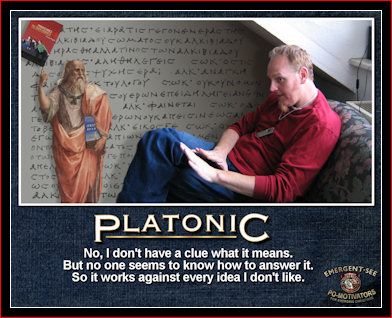
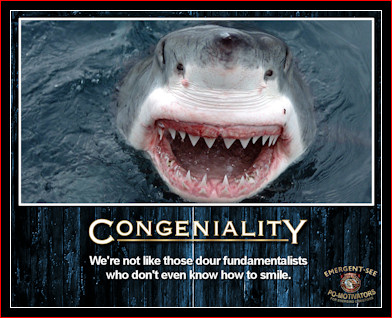

 The
The  say deliberately that if I go away from my Master I can expect nothing but the hottest wrath of God for ever. Unhappy, unhappy wretch, to have preached to such multitudes, if I deny my Lord! Condemned out of my own mouth a thousand times over! I shall be a mark for all the arrows of vengeance.
say deliberately that if I go away from my Master I can expect nothing but the hottest wrath of God for ever. Unhappy, unhappy wretch, to have preached to such multitudes, if I deny my Lord! Condemned out of my own mouth a thousand times over! I shall be a mark for all the arrows of vengeance.
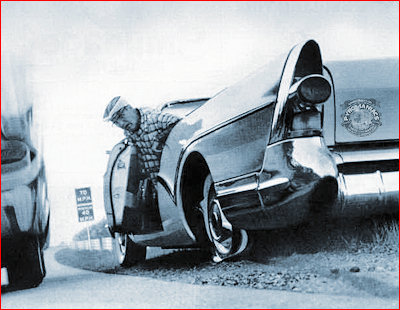
 riday I spent the morning at the dentist (again!) and the afternoon visiting a friend whose wife is in the hospital with a very serious and painful form of cancer. I was surprised to see the amount of activity in the combox under
riday I spent the morning at the dentist (again!) and the afternoon visiting a friend whose wife is in the hospital with a very serious and painful form of cancer. I was surprised to see the amount of activity in the combox under  Touchstone wrote:
Touchstone wrote: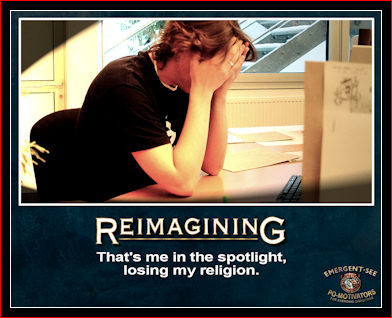 Now let me make a couple of comments about the latter half of
Now let me make a couple of comments about the latter half of  Finally:
Finally: 've had perhaps four or five friends over the years who seemed to be truly devout believers but abandoned the Lord unexpectedly. Nice guys, all of them—intelligent, thoughtful, knowledgeable, and (in one or two cases) active in full time ministry. So we're not talking about people who briefly made a questionable profession of faith while trying to keep one foot in the world. These were people who seemed completely devoted, exemplary disciples—just like Judas seemed to be right up until the point where he betrayed Christ. Let's call them Type-J Apostates. There are several other key similarities and differences from case to case:
've had perhaps four or five friends over the years who seemed to be truly devout believers but abandoned the Lord unexpectedly. Nice guys, all of them—intelligent, thoughtful, knowledgeable, and (in one or two cases) active in full time ministry. So we're not talking about people who briefly made a questionable profession of faith while trying to keep one foot in the world. These were people who seemed completely devoted, exemplary disciples—just like Judas seemed to be right up until the point where he betrayed Christ. Let's call them Type-J Apostates. There are several other key similarities and differences from case to case: The actual pattern seems to be that the person will seem to disappear from circles of Christian fellowship for an extended time. If they actually do express their doubts to anyone, it's usually under a false identity on the Internet. Under the cloak of anonymity, they will begin to gravitate toward skeptical forums. And if they do voice their doubts in "Christian" forums, rather than going where they might get help from mature believers, they tend to favor mixed forums featuring totally unmoderated discussion dominated by lay people, novices, and cranks. Moreover, if they voice their doubts in such a context, it will usually be in an argumentative way, and not as someone genuinely seeking answers.
The actual pattern seems to be that the person will seem to disappear from circles of Christian fellowship for an extended time. If they actually do express their doubts to anyone, it's usually under a false identity on the Internet. Under the cloak of anonymity, they will begin to gravitate toward skeptical forums. And if they do voice their doubts in "Christian" forums, rather than going where they might get help from mature believers, they tend to favor mixed forums featuring totally unmoderated discussion dominated by lay people, novices, and cranks. Moreover, if they voice their doubts in such a context, it will usually be in an argumentative way, and not as someone genuinely seeking answers.
 his evening Darlene and I went to the Hollywood premiere of Kirk Cameron's movie:
his evening Darlene and I went to the Hollywood premiere of Kirk Cameron's movie: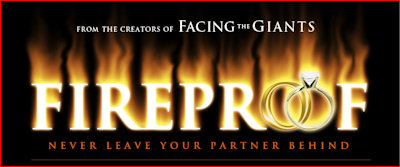
 That's what I liked best about it. Also, (while I'm no movie critic) I thought Kirk Cameron's performance was stellar. I was amazed at the range of emotions he achieved, and how he was able to take the audience (several times) from the rawest kind of anger to instant comic relief—and do it believably.
That's what I liked best about it. Also, (while I'm no movie critic) I thought Kirk Cameron's performance was stellar. I was amazed at the range of emotions he achieved, and how he was able to take the audience (several times) from the rawest kind of anger to instant comic relief—and do it believably.






 ongtime readers will remember a character who posted in our comment-threads for several months as "Touchstone." He's one of only half a dozen people or so who in three years' time have managed to get permanently banned from commenting here. He was banned for (among other things) repeated acts of recreational profanity. I hated banning him, because he was more interesting than the typical miscreant who invades our meta. But it seemed he wanted to get banned, because his rule violations were deliberate—and they escalated in intensity after he was warned.
ongtime readers will remember a character who posted in our comment-threads for several months as "Touchstone." He's one of only half a dozen people or so who in three years' time have managed to get permanently banned from commenting here. He was banned for (among other things) repeated acts of recreational profanity. I hated banning him, because he was more interesting than the typical miscreant who invades our meta. But it seemed he wanted to get banned, because his rule violations were deliberate—and they escalated in intensity after he was warned. The ambiguous and minimalistic way he tried to imply that he was a Christian was not the only reason to distrust him. In our earliest exchange, he demanded evidence—"at least a token footnote reference"—demonstrating that there is increasing uncertainty among professing evangelicals regarding whether absolute truth even exists.
The ambiguous and minimalistic way he tried to imply that he was a Christian was not the only reason to distrust him. In our earliest exchange, he demanded evidence—"at least a token footnote reference"—demonstrating that there is increasing uncertainty among professing evangelicals regarding whether absolute truth even exists. Touchstone illustrates precisely what I've said about why a postmodern attitude toward "truth" undermines the authority and perspicuity of Scripture.
Touchstone illustrates precisely what I've said about why a postmodern attitude toward "truth" undermines the authority and perspicuity of Scripture. aspires to be an annoying gadfly. After numerous verbose and cynical comments from him, always negative and usually grounded in a position on Scripture that is contrary to the Protestant confessions, I can't resist the conclusion that it's the latter. I'm not going to waste time or dignify his skepticism by treating it as genuine faith colored by nothing more than a different hermeneutic.
aspires to be an annoying gadfly. After numerous verbose and cynical comments from him, always negative and usually grounded in a position on Scripture that is contrary to the Protestant confessions, I can't resist the conclusion that it's the latter. I'm not going to waste time or dignify his skepticism by treating it as genuine faith colored by nothing more than a different hermeneutic. Shortly after we had to ban Touchstone from commenting at PyroManiacs, Peter Pike made
Shortly after we had to ban Touchstone from commenting at PyroManiacs, Peter Pike made  Now, it is patently obvious to anyone who ever read his comments here and at Triablogue that Touchstone was no "devout Christian" a year ago. In fact, he was already an inveterate skeptic almost two years ago. And you've got to assume he didn't get there from his supposed evangelical upbringing overnight. So the veracity of Touchstone's story (especially his imaginary time line) is easily debunked, merely by doing a Google search
Now, it is patently obvious to anyone who ever read his comments here and at Triablogue that Touchstone was no "devout Christian" a year ago. In fact, he was already an inveterate skeptic almost two years ago. And you've got to assume he didn't get there from his supposed evangelical upbringing overnight. So the veracity of Touchstone's story (especially his imaginary time line) is easily debunked, merely by doing a Google search 
 Found in my e-mail out-box
Found in my e-mail out-box










